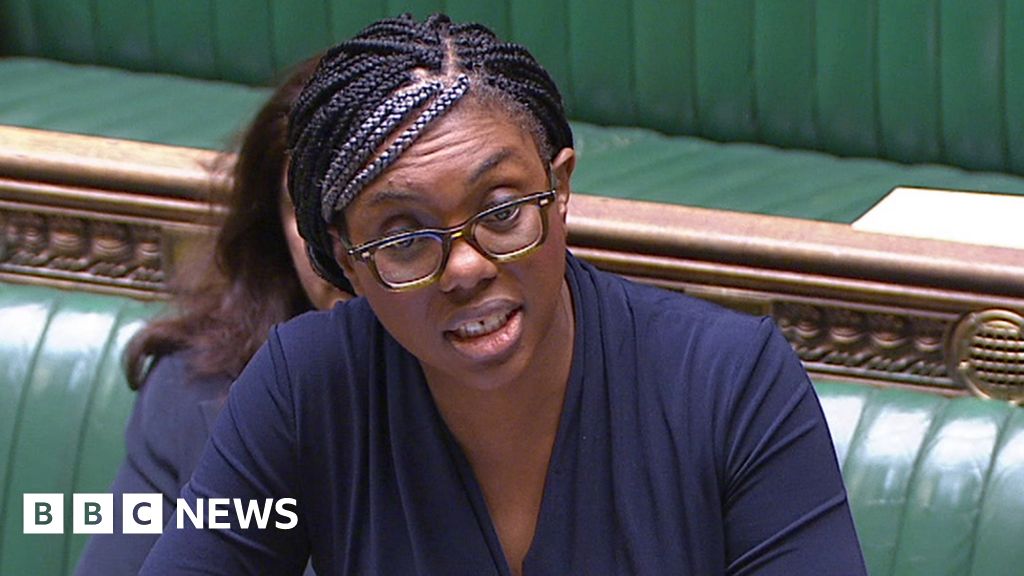A row has deepened between Business Secretary Kemi Badenoch and the Post Office chair she sacked, after he said he had been told to delay compensation payments for sub-postmasters.
Henry Staunton said he had been told to stall payouts to allow the government to "limp into the election", apparently to help state finances.
But Ms Badenoch said the claims were "completely false" and accused him of spreading "made-up anecdotes".
Mr Staunton has stood by his comments.
The row first erupted at the weekend when the former Post Office chair said in an
interview with the Sunday Times, he was told by a senior civil servant to slow down compensation payments to postmasters.
Between 1999 and 2015, hundreds of sub-postmasters and postmistresses were wrongly prosecuted after a faulty computer system called Horizon made it look like money was missing from their branches.
Some sub-postmasters wrongfully went to prison, many were financially ruined. Some have since died.
The government has promised to quash convictions and pay compensation, but concerns have been raised over the speed and complexity in victims securing financial redress, with just 33 claims fully settled.
Mr Staunton, who has been on boards of companies ranging from ITV to WH Smith, was appointed as chair of the Post Office in December 2022, but was dismissed by Ms Badenoch last month.
He told the Sunday Times that early on in his role, "I was told by a fairly senior person to stall on spend on compensation and on the replacement of Horizon, and to limp, in quotation marks - I did a file note on it - limp into the election".
"It was not an anti-postmaster thing, it was just straight financials," he said. "I didn't ask, because I said: 'I'm having no part of it - I'm not here to limp into the election, it's not the right thing to do by postmasters'."

